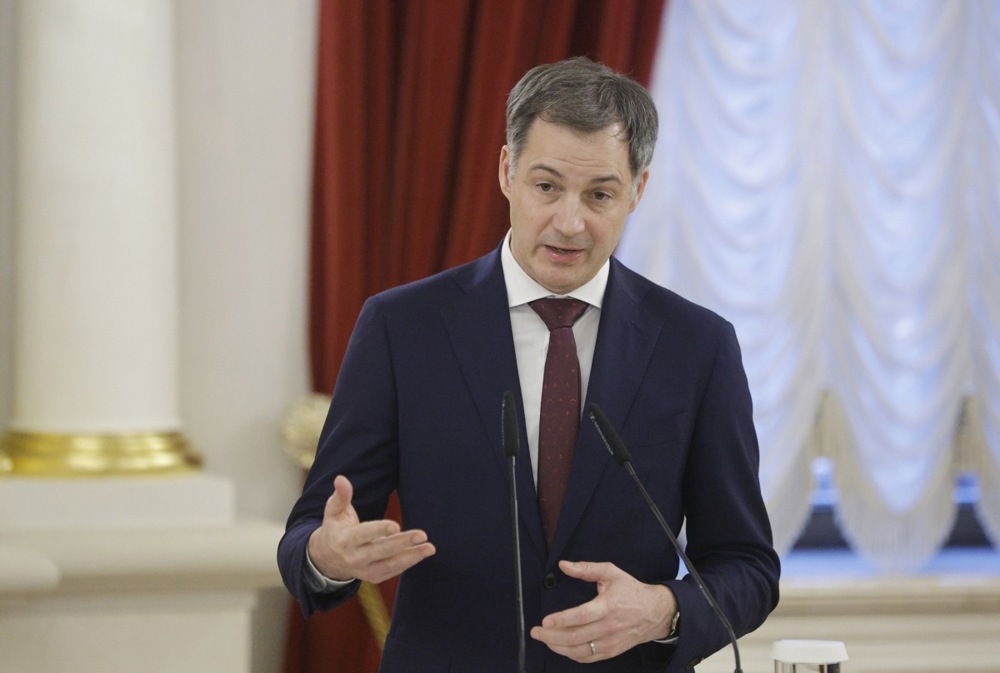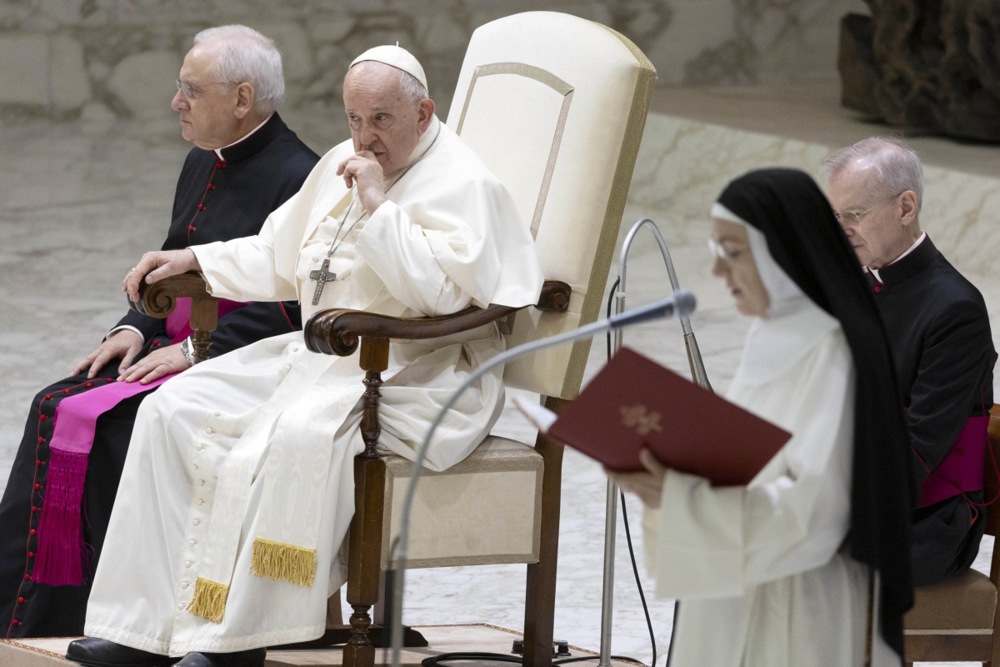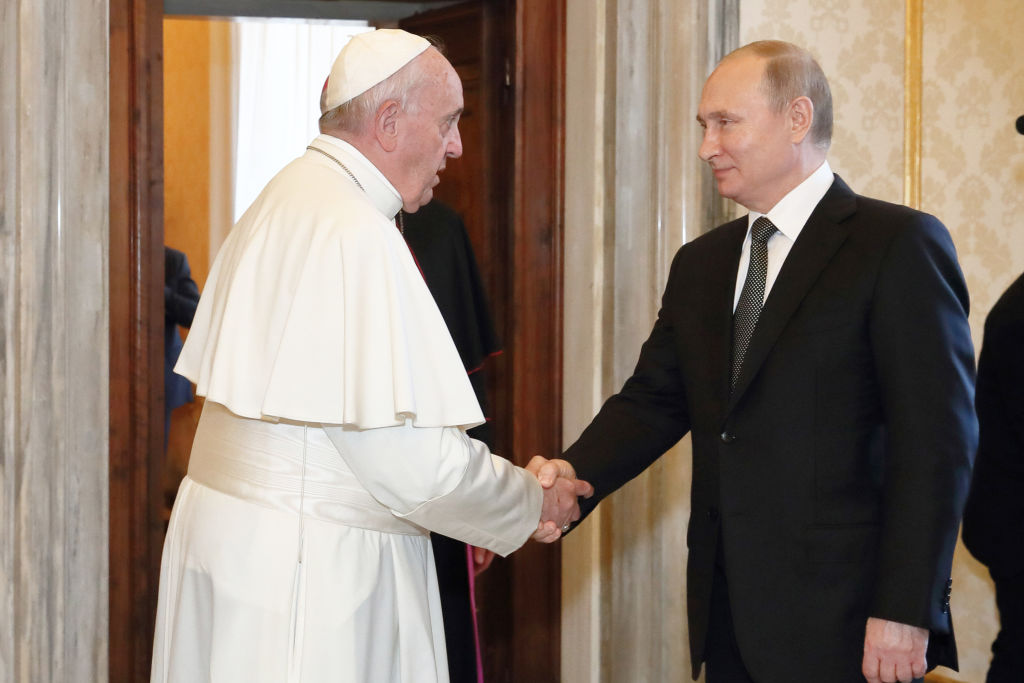The Pope’s three-day visit to Belgium over the weekend was overshadowed by historical sexual abuse by members of the clergy.
The trip, which began September 26, marked the first visit by a Pope to Belgium in 30 years.
Those decades have seen a great deal of resentment festering towards the Catholic Church over sexual abuse scandals. The scandals have continued, when in March this year the former Bishop of Bruges Roger Vangheluwe was dismissed from the clerical state for abuses committed when he was a priest.
King Philippe of Belgium told Pope Francis that “terrible suffering was inflicted on children, which they will carry with them for the rest of their lives.” He made the remarks in the pontiff’s first official visit, which was to the royal palace of Laeken.
“That includes the victims of forced adoption”, the King told an audience which included outgoing PM Alexander De Croo and other state dignitaries. The king was referring to the forced adoption of the children of unmarried mothers.
The King observed that “it has taken so long for their cries for help to be heard or recognised,” and said the Church needed to attempt to “repair the unrepairable.”
De Croo made equally sharp remarks.
“We cannot accept a cover-up,” the outgoing prime minister said. “This damages everyone’s valuable work.”
“The many cases of sexual abuse and of forced adoptions have severely damaged trust. You are committed to justice, but there is still a long way to go.”
“Faith provides a foothold for many, but we cannot ignore the painful wounds that exist within the Catholic faith community and wider society,” he added.
The official purpose of the visit by the Pope was to mark the 600th anniversary of the Leuven (or Louvain) University.
However, for many Belgians, the visit offered an opportunity to make more complaints about the Catholic Church’s actions in their country.
Luc Sels, dean of the Flemish University, said he wanted to make use of the Pope’s visit to speak out about the role of women and homosexuality in the Church.
A rainbow flag was flying at his university’s Faculty of Art building on Friday, “because here everyone fully belongs.”
Pope Francis, who later met several abuse victims in private, said the Church would listen to the victims. He added there was now a prevention programme in place to prevent abuse by members of the clergy.
Apparently prompted by the speeches by the Belgian King and prime minister, the Pope departed from his originally planned speech and said, with emotion, that the “abuse of a minor is a disgrace.”
“We think of the time of the innocent saints and say, ‘what a tragedy…’, but today, in the Church itself, there is this crime: the Church should be ashamed and ask for forgiveness and try to resolve this situation with Christian humility and use all possibilities so that this does not happen again,” the Pope said.
“Someone says, ‘but Your Holiness, according to statistics, most abuse happens in the family, in the neighbourhood, in sports’… if there is only one case, it is enough to be ashamed: in the Church, we should ask forgiveness for this, and others should ask forgiveness elsewhere. This is our shame and humiliation.”
Belgian clerical abuse victims in attendance said they were happy about De Croo’s remarks, though most said they wanted to see more concrete actions also.
After this meeting, the Pope made a surprise visit to a convent of the Little Sisters of the Poor in Brussels, where the nuns sang songs to welcome him.
The next day, the Pope attended a breakfast with homeless people and migrants in Brussels. Later he went to Hope Happening, a youth event. He also visited the French-speaking part of the Louvain University and had a private meeting with members of the Jesuits.
On Sunday, the Pope said Mass at the King Baudouin Stadium before a crowd of 40,000 people. During his address, he condemned sexual abuse within the Church, emphasizing the need never to suppress or cover up such cases. This statement, once again, seemed to depart from the prepared script.
Pope Francis also, surprisingly to many, announced he would begin the beatification of the former King Baudouin, who died in 1993, calling him “a brave man” for resisting the “criminal” law on abortion. Beatification is the first step towards declaring the late king a saint.
King Baudouin, a deeply religious man, famously abdicated for 36 hours so the Belgian parliament could sign an abortion law without him having to support it.
In an interview with the Belgian TV channel RTBF the Pope praised King Baudouin, calling him “a saint,” and a “politician with a spine.”
“There is no discussion about it. A human life is destroyed [with abortion]. That is murder,” the Pope said.
Doctors who perform abortions are “contract killers”, he said.
Upon my return to Rome, I will start the beatification process of King Baudouin. May his example as a man of faith illuminate all leaders.
— Pope Francis (@Pontifex) September 29, 2024
The Catholic faith in Belgium has suffered greatly due to abuse scandals and cover-ups. These revelations eroded public trust and led to significant declines in religious participation.
One of the most notorious involved Roger Vangheluwe, the former Bishop of Bruges, who admitted in 2010 to sexually abusing his nephew from the age of five over a period of many years.
The revelation shocked the nation and led to Vangheluwe’s resignation.
Another major scandal erupted the same year when a Church commission revealed it had received hundreds of complaints of sexual abuse by members of the clergy, dating back decades.
In 2010, police raided the headquarters of the Belgian Catholic Church, including the home of Cardinal Godfried Danneels, as part of an investigation into alleged cover-ups of abuse cases.
Many believers have since distanced themselves from the institution, resulting in lower mass attendance and fewer vocations to the priesthood. The Church’s moral authority has also diminished, weakening its influence on social and political issues.
While the Church has implemented reforms and stricter policies, many have described those steps as insufficient or overdue.





